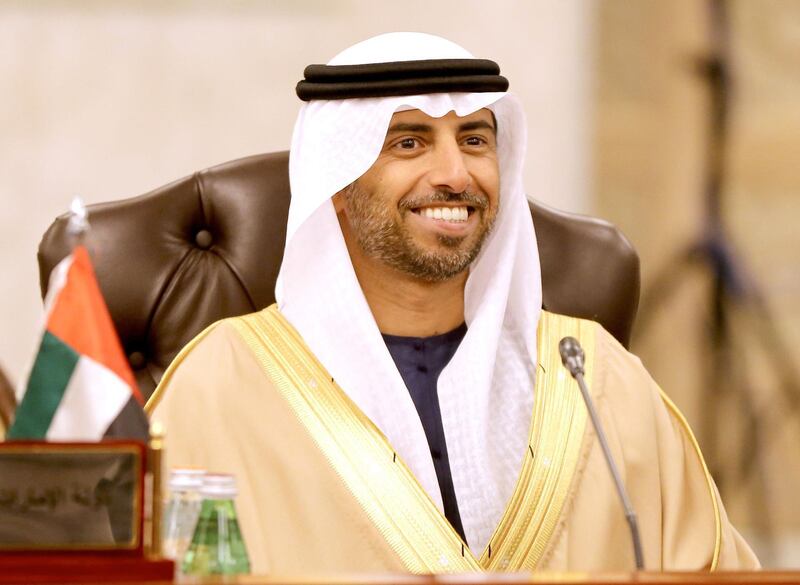Opec and non-Opec producers will agree on a strategy in June to exit the production cuts agreement currently in place to rebalance the oil markets, the UAE energy minister said on Monday.
Oil producers agreed in Vienna at the end of November to extend output curbs of around 1.8 million barrels a day until the end of 2018, subject to review in June. The global oil deal, which came into effect in January, was due to expire end of March.
"There is a meeting in June and hopefully the market will be in a much better position for us to announce an exit strategy," Suhail Al Mazrouei said on the sidelines of a conference in Abu Dhabi.
His comments come a day after Kuwait's former oil minister Issam Al Marzooq told Bloomberg that Opec may consider an earlier exit to the production cuts slated to end by 2018, if the market rebalances by mid-year.
Mr Al Marzooq was replaced on Tuesday with Bakheet Al Rashidi, who headed state-owned Kuwait Petroleum International, in an emiri decree announced on Kuwait News Agency.
Mr Al Marzooq cited pressures from Russia - the largest producer outside of Opec - to exit the deal as soon as possible.
____________
Read more:
[ Oil prices steady as Chinese demand counters stronger dollar ]
[ Oil dips but BofA sees $70 a barrel next year ]
____________
Mr Al Mazrouei said it was premature to speculate on how the strategy to exit production cuts will be phased out among oil exporters. "That we will announce a strategy in the June meeting doesn't mean we'll exit in June. No one can tell what the strategy is prior to that meeting. It is unfair for anyone to predict but that is not going to be the truth because the truth is going to be seen in June," he said.
Rebalancing of the oil markets could happen in the first half or the second half of next year, Mr Al Mazrouei added.
"We're very optimistic about growth next year, both that of the world economy and growth in demand and .... about the markets balancing," he said.
Any exit deal is unlikely to take place before the end of 2018, according to Spencer Welch, director for oil markets and downstream at London-based IHS Markit.
"One of the main targets of the deal was to get oil inventories back to 5-year average levels. We think this is unlikely to be achieved by end 2018," said Mr Welch. "But if there is a clear exit plan, it does give assurance to the market that there won’t be a sudden gush of oil coming back in mid-2018."
Producers from within the exporters group led by Saudi Arabia and those outside led by Russia came to a historic agreement last year to cut production in a move that helped prices recover. Prices fell from US$100 a barrel highs in 2014 to just under $29 a barrel in the beginning of 2016 due to the oil glut and weak demand.
"The key question for ending the deal early is probably Russia who are concerned about oil price being too high and the market 'overheating', providing too much stimulation to increasing US production," said Mr Welch.
The price of Brent traded at $63.39 a barrel at 3:44pm Dubai time. It had reached a two-year high of $64.27 a barrel early November following disruptions caused to supply from Iraqi Kurdistan in the wake of a independence referendum in the semi-autonomous region.







